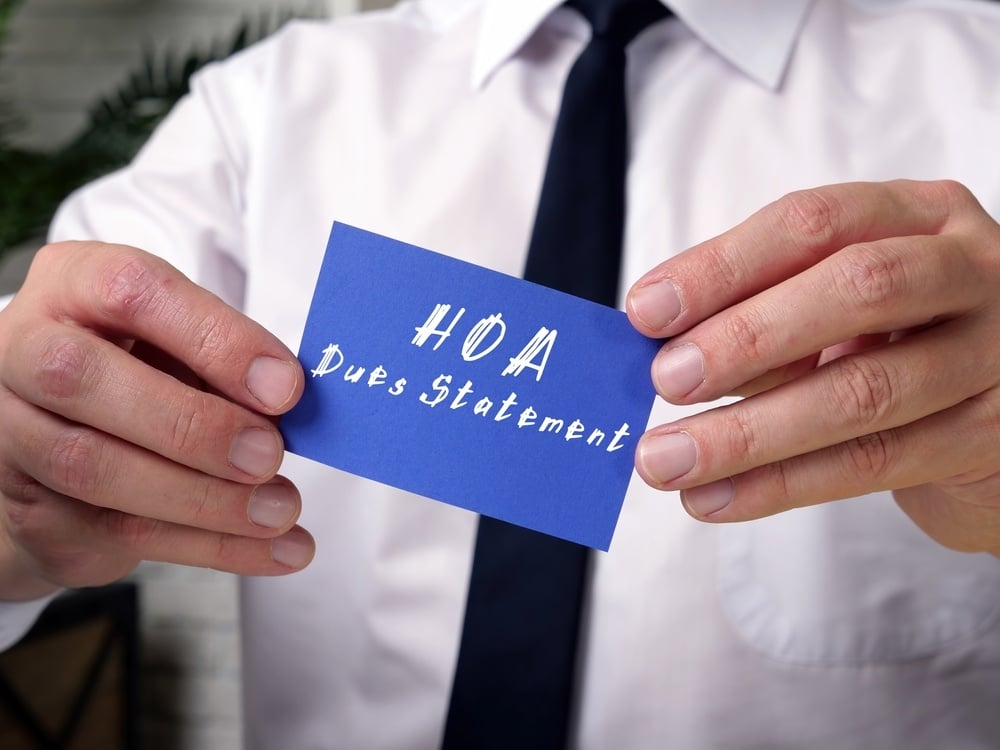In a homeowner's association, members pay their assessments, and those assessments are divided between operating and reserve accounts. That money goes to pay for the upkeep of common area components in an association. Individual board members should not have access to those funds.
The idea isn't that an individual or small group would profit from the assessments being paid, but rather that all members would collectively benefit because that money's being used for the common good of the entire homeowner’s association.
Since a homeowner’s association is a non-profit organization, its purpose is not to make a profit, but instead to charge HOA dues – also called HOA fees or assessments – to preserve the property values in the homeowner’s association. In other words, the HOA requires revenue from somewhere to fund the expenses to maintain the community.
Types of HOA Expenses
What HOA fees cover varies from association to association, but common expenses typically include:
- Common area maintenance, such as greenspaces or pool upkeep
- Building maintenance, such as a clubhouse or park pavilion
- Landscaping of common areas
- Reserve planning for emergencies or major repairs
- Hiring an HOA management company
If you’re unsure what the HOA fees cover in your association, read your governing documents. The CC&Rs (Covenants, Conditions & Restrictions) should provide clear verbiage about what you, the homeowner, is responsible for and what the HOA is responsible for.
Who Should Have Access
The people allowed to have access to HOA funds should be limited. Just because you’re a board member, doesn’t mean you get access. Usually, it’s just the HOA board president, treasurer, and property manager, if your association has one.
However, you don’t want to leave too much power in the hands of a few because it could, unfortunately, be an opportunity for fraudulent activity within the HOA board.
As a checks and balance, bank statements should be sent to someone other than the board members who can write checks and access the account, so they can act as an impartial inspector. Using an accountant who specializes in homeowners association would be a good option.
What to Do with Surplus Funds
Ideally, an association’s budget would zero out at the end of the year, but that’s not always the case. Sometimes, an HOA is faced with a budget deficit or surplus. If there’s a deficit, the solution is often raising HOA fees or making a budget adjustment somewhere.
If there’s a surplus of funds, the HOA can:
- Roll the funds over to the next year
- Refund the surplus to HOA members
- Transfer the surplus to the reserve account
Option 3 is probably the wisest thing to do, considering that many HOA reserve accounts are severely underfunded.
An HOA board should refer to the governing documents to see if they indicate what to do with surplus funds.
Using Fines and Foreclosures to Profit
Two common methods of rule enforcement for some HOAs include fining members who violate the HOA rules and pursuing foreclosure on homes of delinquent accounts. Unfortunately, some associations abuse this practice.
THE CASE OF GREEN VALLEY RANCH
One real-life example hails from a Colorado HOA. According to CBS4, the Green Valley Ranch HOA has managed to accumulate more than $2 million in total assets, with more than $1 million in checking accounts. Most of its money stems from fines and foreclosures. The report states that the HOA took in $461,000 in 2018 from fines and fees alone, with another $12,000 in lien fees. The following year, it took in $613,422 in fines and fees. Years 2020 and 2021 were no exception, taking in $331,650 and $303,900 in fines and fees, respectively.
Foreclosures have become a profit-earning machine for the Colorado HOA. In fact, between 2021 and 2022, the HOA filed foreclosures on almost 60 homes — and 2022 is only halfway through. It seems the modus operandi of the HOA is to fine homeowners for violations, such as broken blinds on a window and overgrown weeds, and initiate foreclosure when owners fail to settle the fines. What starts out as a $200 fine eventually escalates into a foreclosure sale.
This may be a more extreme scenario, but it's starting to happen in some associations. Enough so that state laws are being passed to limit associations from pursuing foreclosures based on fines owed.
When it comes to rule enforcement in an HOA there are better strategies and action steps a board can take to create a clear written policy all members can agree on.
The question, “Who profits from HOA dues” can be answered by understanding that the HOA collects dues not to make a profit, but to maintain the association and preserve property values so that the collective membership can enjoy where they live.


.png)
.jpg)






